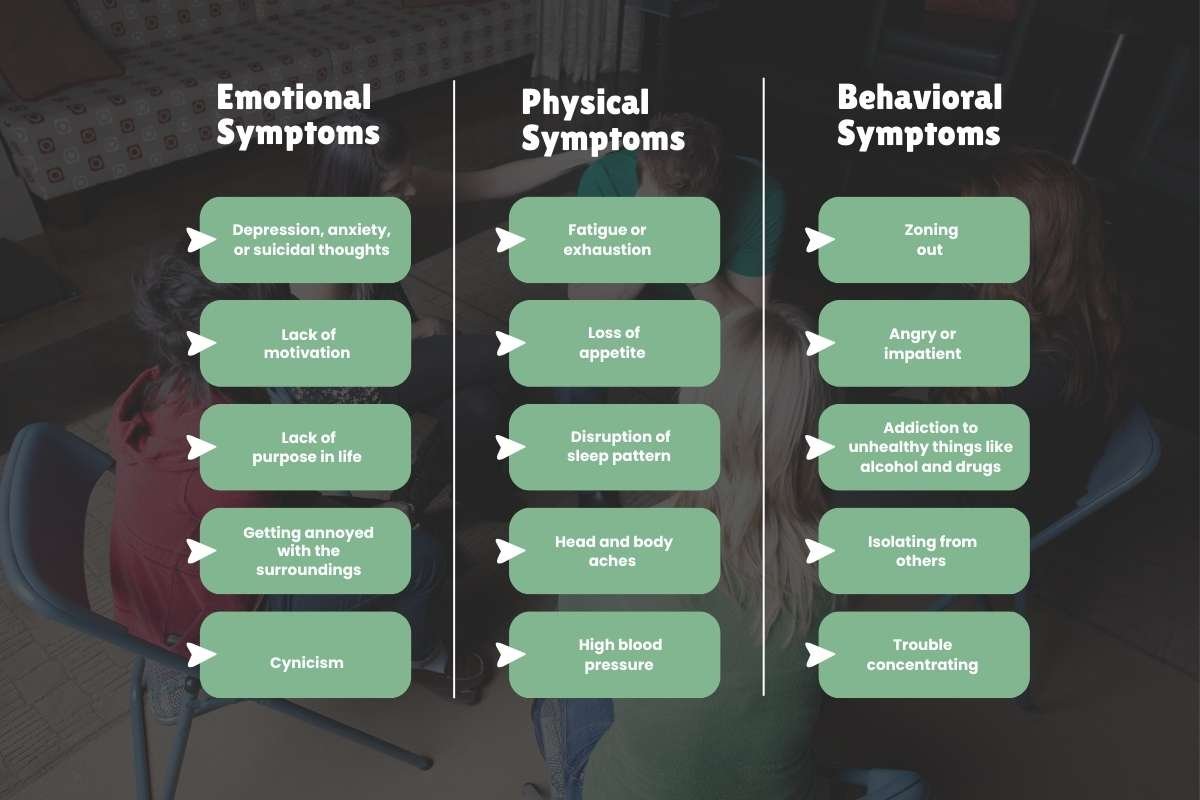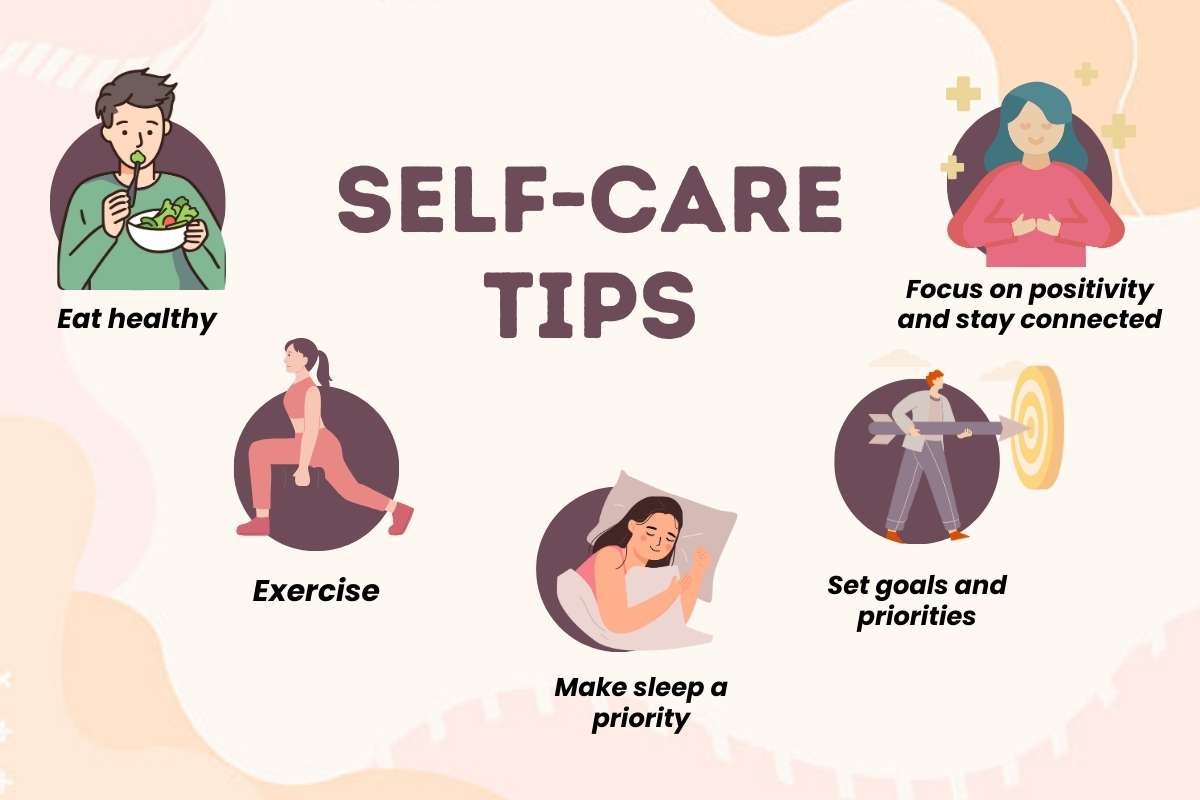The questioning of reality and finding a purpose in life is a sign of existential crisis. We all have feelings bottled up and are overwhelmed by them. Many factors are involved in shaping feelings like loneliness, loss, and depression, but trying to overcome these feelings is important. Suffering is painful and personal, and it is important that we endure everything to gain experience and a better understanding of life. At the same time, we should understand the limits to that too. Dealing with personal problems requires an external push and that is counseling and therapy.
In this article, we will discuss mental health, psychotherapy, types of counseling for mental health, and its significance in the modern world.
What is Mental Exhaustion?
Just like how our body gets tired due to excessive activities, similarly, the human mind is also prone to get exhausted. Mental exhaustion is caused by various reasons such as excessive workload, overthinking, or focusing on a particular task. This will result in the alteration of daily schedules, affecting both, professional and personal lives. Going through stressful and intense emotional times leads to depression, emptiness, and a sense of hopelessness. It can also trigger the nervous system causing panic and anxiety. With the availability of different types of counseling for mental health, it is important to identify and deal with those issues for better well-being.
Here are the common symptoms of mental exhaustion:

| Emotional Symptoms | Physical Symptoms | Behavioral Symptoms |
| Depression, anxiety, or suicidal thoughts | Fatigue or exhaustion | Zoning out |
| Lack of motivation | Loss of appetite | Angry or impatient |
| Lack of purpose in life | Disruption of sleep pattern | Addiction to unhealthy things like alcohol and drugs |
| Getting annoyed with the surroundings | Head and body aches | Isolating from others |
| Cynicism | High blood pressure | Trouble concentrating |
What is Mental Health Counseling?
Mental health counseling is also known as psychotherapy or therapy. It is the process of interacting with trained professionals to address emotional, mental, and behavioral issues. It is done through a series of sessions. These sessions provide a safe environment for an individual to express and talk about their feelings, thoughts, and experiences openly. Consulting a therapist is a brave step to be taken as they provide guidance to improve your mental health. It will help you deal with issues like anxiety and depression.
Types of Mental Illness
- Anxiety and stress
- Depression
- Trauma and PTSD ( Post Traumatic Stress Disorder)
- Substance Abuse
- Relationship Problems
- Bipolar Disorder
Mental illness takes a toll on individuals, affecting both professional and personal lives.
Different Types of Counseling for Mental Health
There are different types of counseling for mental health issues and choose the right ones based on your needs.
Some of them are:
1. Cognitive Behavioral Therapy (CBT)

The process of overthinking about the world around you and yourself is natural and it is caused due to experiences of self-doubt. Cognitive Behavioral Therapy (CBT) focuses on identifying wrong perceptions, feelings, or thoughts an individual has on their surroundings. During a CBT, a therapist will consult an individual to find out their unhealthy patterns of thought that may lead to self-destructive behaviors and beliefs. By addressing these issues, the individual and therapist can devise constructive strategies to improve thought patterns and effective coping skills. They are often given tasks like replacing negative thoughts with more realistic ones. CBT can be used to treat depression, anxiety, and trauma.
2. Dialectical Behavior Therapy (DBT)
Dialectical Behavior Therapy (DBT) is one of the most effective types of counseling for mental health issues. DBT is a type of CBT used to treat individuals with suicidal thoughts and borderline personality (BPD). Therapists teach individuals to accept their negative thoughts, accept them, and change their thought patterns. It helps people divert from tendencies like self-harm and suicide. Individuals are given home tasks and asked to maintain a journal to write down their negative thoughts. DBT also teaches to increase distress tolerance, regulate emotions, and be conscious while triggering events. Dialectical behavior therapy is also used for treating other issues like eating disorders and PTSD.
3. Psychodynamic Therapy
Psychodynamic therapy is one of the common types of counseling for mental health issues. This therapy is used to resolve emotional conflicts caused by a traumatic childhood or past experiences. The main motive of this therapy is to make a person understand their thoughts, feelings, and beliefs and change their unhealthy patterns. Psychodynamic therapies last for several months and even years based on the coping process.
4. Acceptance and Commitment Therapy (ACT)
Acceptance and commitment therapy (ACT) persuades an individual to stop denying, avoiding, and struggling with their inner battles. It helps them learn to accept these negative patterns of feelings and commit to a healthy behavioral change. ACT’s main motive is to instill psychological flexibility in a person to accept changes. Acceptance and commitment therapy (ACT) is used to treat issues like grief and anxiety.
5. Solution-Focused Brief Therapy (SFBT)
This is one of the common types of counseling for mental health issues. Traumatic experiences disrupt the practical thinking and decision-making process leading to overthinking. Psychotherapy focuses on the roots of the problem that is affecting the present thought patterns of the individual. Through weekly sessions, the therapist tries to understand what happened in the past that has caused the mental illness. Solely finding out the problem is not helpful in some cases. Solution-focused brief therapy (SFBT) focuses on helping the individual to identify their strengths and skills to overcome their hardships and improve their mental health.
6. Trauma Therapy
It is difficult to overcome traumatic experiences. Mental well-being and emotional development are affected by these experiences. Trauma can be caused by various like war, physical or sexual abuse, violence, or even losing a loved one. It can lead to substance abuse. Through trauma therapy, the therapist helps the individual to open up about the instances that pushed them into depression. There are different types of therapies to treat trauma. Some of the best ones are Eye Movement Desensitization Reprocessing (EMDR) and Trauma Resilience Model (TRM).
7. Interpersonal Therapy
Relationships are formed at every step in life. In a community, at the workplace, with family and friends, people interact with them every day. Sometimes the process of interaction can be affected due to past experiences. Interpersonal therapy helps the individual overcome the hurdles of maintaining a relationship by improving their communication skills, conflict resolution, and coping skills.
Self-Care Tips

- Eat healthy
- Exercise
- Make sleep a priority
- Set goals and priorities
- Focus on positivity and stay connected
Conclusion
Mental health and well-being are affected by various reasons. It has been challenging to stay mentally fit. Traumatic experiences can take a toll on our lives, affecting our emotional, and physical states, and perception of life. It is important to identify the issues and overcome them to stay healthy. It can be done through counseling or psychotherapy. Therapy sessions provide a safe space to express our thoughts, feelings, and emotions to the therapists. There are different types of mental health counseling that address specific issues. Choose the right ones that help improve your coping mechanism.









